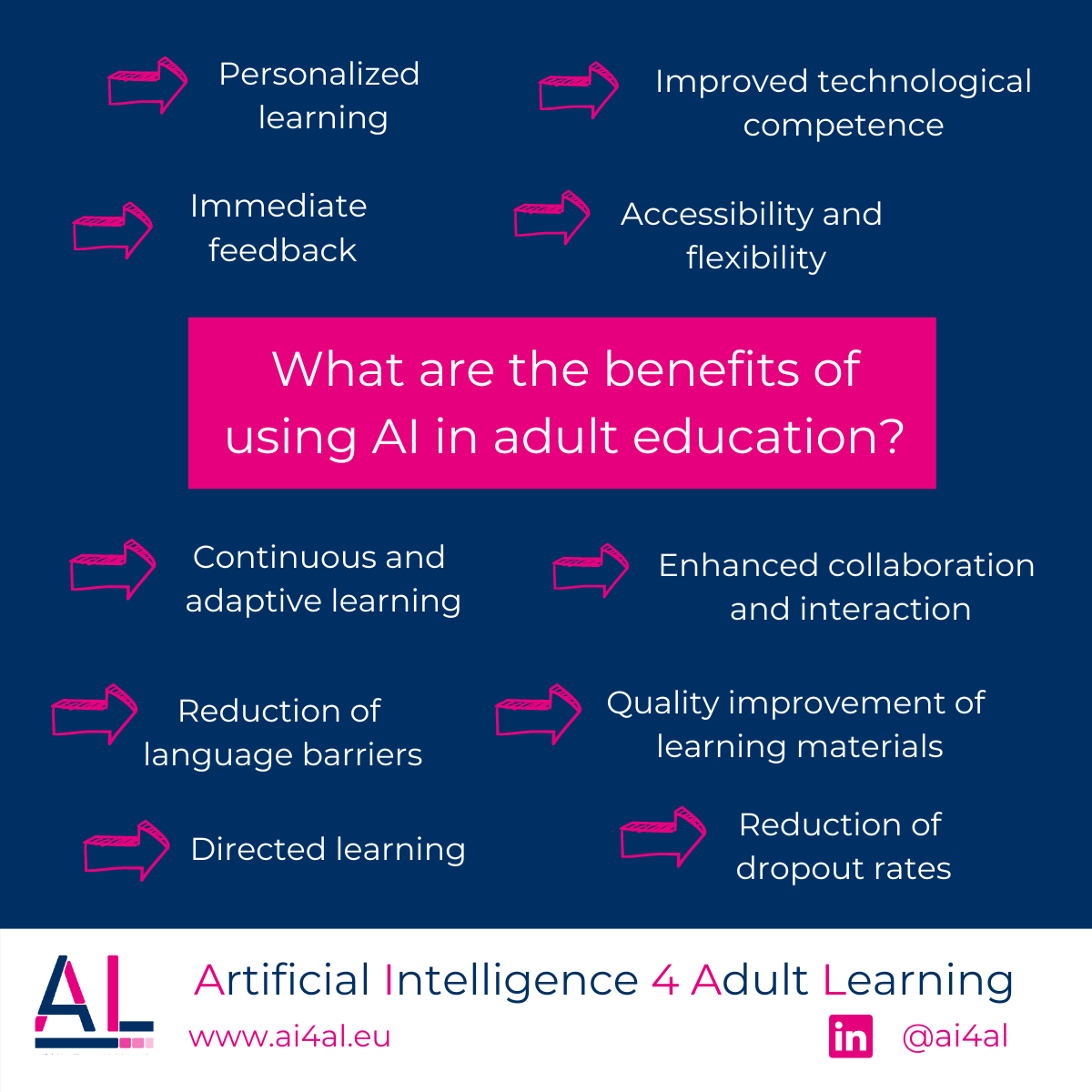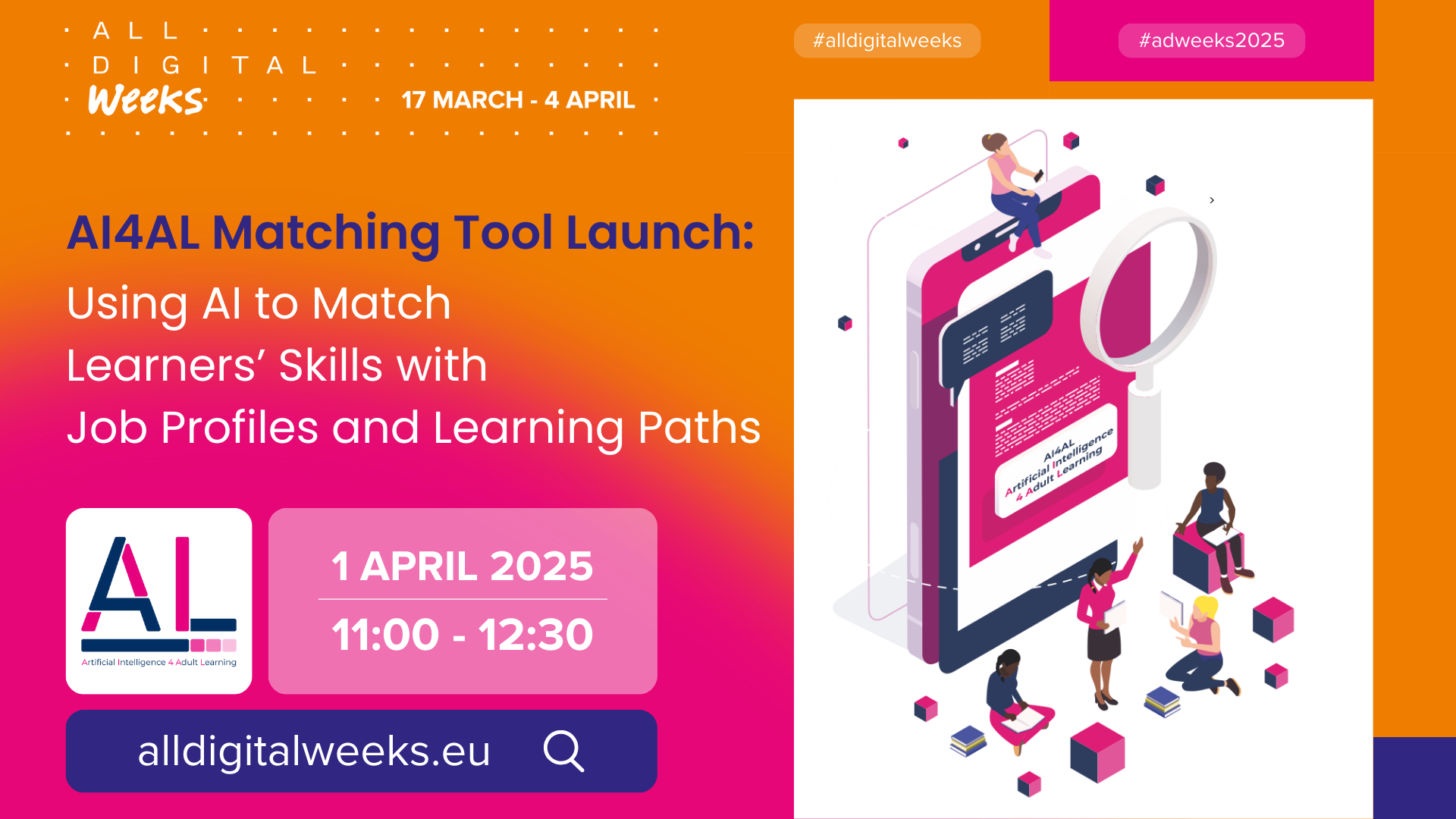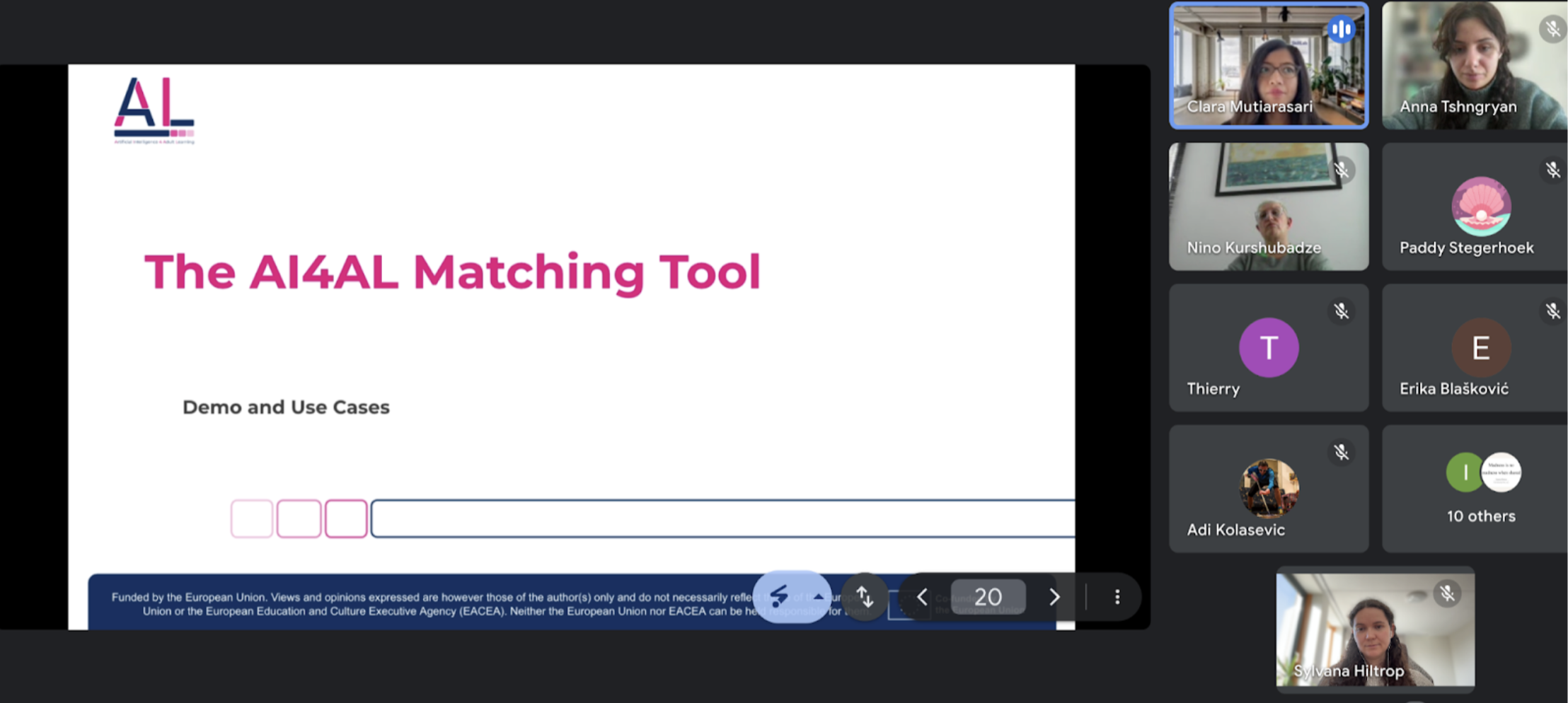The use of artificial intelligence (AI) in adult education can lead to several significant learning outcomes, enhancing both the learning experience and the effectiveness of education for adults. Below are key learning outcomes associated with AI in adult education:
- Personalized Learning: AI enables the creation of personalized learning pathways tailored to the specific needs, skills, and goals of individual adult learners. This customization can result in higher engagement and better retention of knowledge, as learners receive content that is most relevant to them.
- Immediate Feedback: AI systems can provide instant feedback on learners’ performance, allowing them to quickly identify and correct mistakes. This rapid response mechanism is especially beneficial for adult learners who may have limited time for study and need efficient learning experiences.
- Improved Technological Competence: Engaging with AI-driven tools can help adult learners improve their digital literacy and technological skills, which are increasingly essential in today’s job market and everyday life.
- Accessibility and Flexibility: AI facilitates greater access to education through online platforms that can be accessed at any time and from any location. This flexibility is crucial for adult learners who often have to balance education with work and family responsibilities.
- Continuous and Adaptive Learning: AI-powered tools can support ongoing education by continuously adapting content to the learner’s progress, leading to deeper understanding and long-term retention of knowledge.
- Enhanced Collaboration and Interaction: AI tools, such as chatbots and virtual assistants, can improve communication and collaboration between adult learners and instructors, fostering a more interactive and engaging learning environment.
- Reduction of Language Barriers: AI, through automatic translation and speech recognition, can help overcome language barriers, making education more accessible to a diverse adult population.
- Quality Improvement of Learning Materials: AI can analyze large datasets to monitor and improve the quality of educational content, ensuring that adult learners receive accurate and effective materials.
- Self-Directed Learning: AI encourages autonomy by allowing adult learners to take control of their learning process, accessing resources independently, and progressing at their own pace.
- Reduction of Dropout Rates: By providing personalized and flexible learning options, AI can help reduce dropout rates, a common issue in adult education, especially for those juggling multiple responsibilities.
These learning outcomes demonstrate the potential of AI to transform adult education, making it more accessible, personalized, and effective, ultimately leading to better skill acquisition and personal and professional growth.







